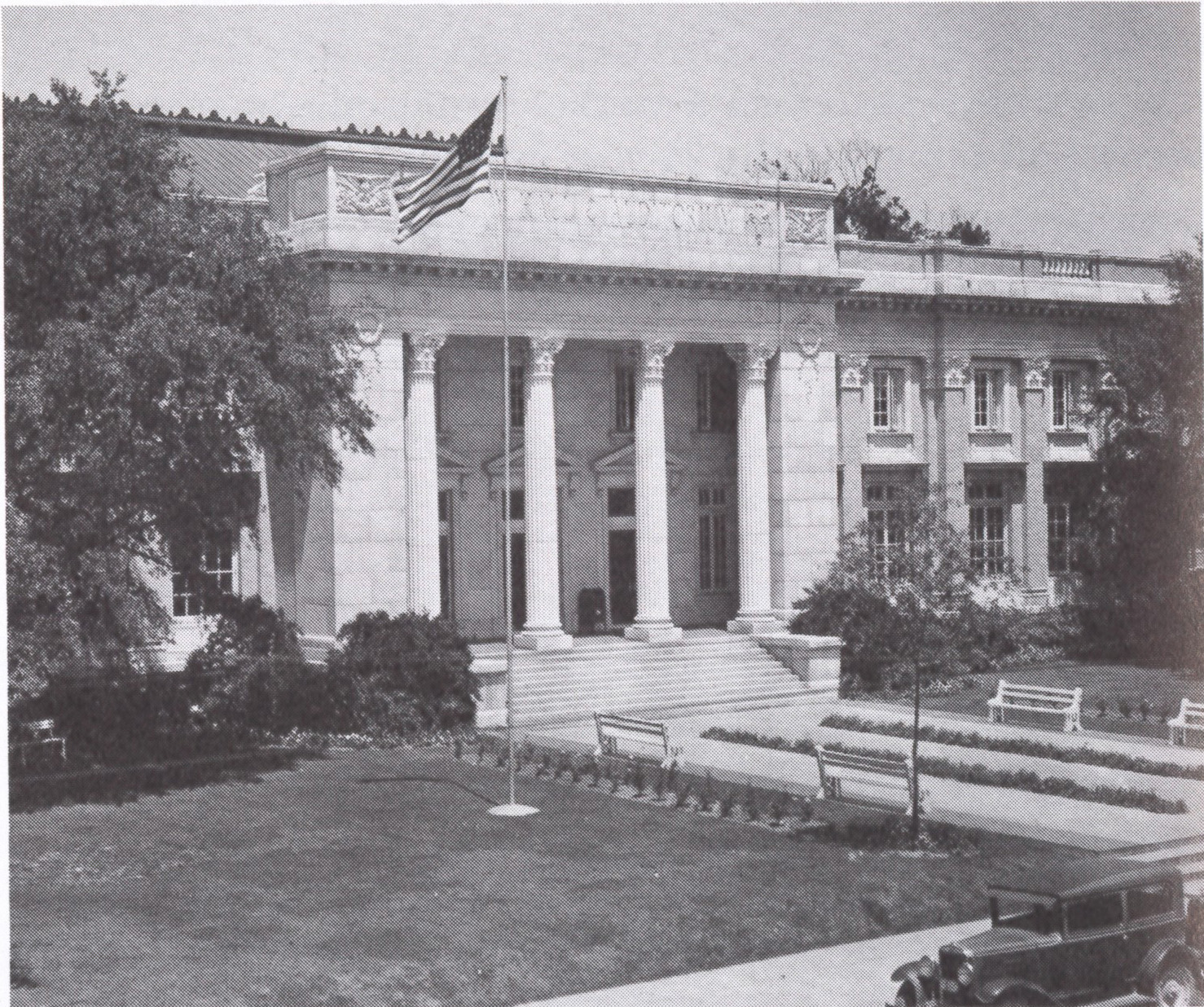ELEANOR ROOSEVELT VISITED BEAUMONT IN 1939
By Judith Linsley
On March 8, 1939, Eleanor Roosevelt came to Beaumont-the city's first visit from a First Lady. Her husband, President Franklin D. Roosevelt, was partially paralyzed from a bout with polio years before, so she traveled around the country as his "eyes, ears, and legs."
Eleanor brought new activism and visibility to the role of First Lady, with frequent press conferences, speeches, and radio broadcasts. She also wrote a newspaper column called "My Day," chronicling her travels. She advocated social reform and pushed for federal action to help the underrepresented-homeless, women, and minorities-more so than Franklin, who did not want to alienate his more conservative supporters. By 1939, Eleanor was actually more popular among Americans than Franklin.
Eleanor, accompanied by her secretary, Malvina Johnson, came on the Kansas City Southern train from New Orleans to a station packed with 5000 eager Beaumonters. Her security consisted solely of Beaumont policemen; in fact, Beaumont Police Captain J.T. Swanzy carried the First Lady's luggage.
After Eleanor made a few remarks over local radio, members of the Beaumont Altrusa Club and the Beaumont Camp Fire Girls presented her with flowers. The Beaumont Enterprise reported that the Bengal Guards, a girls' drill team from Orange High School, formed a "colorful corridor" to guide her to her special car and then "snappily" led the way to Hotel Beaumont, where she was to rest until her talk that night. Men standing along the procession route removed their hats. Once at the hotel, the Guards gave a brief concert in her honor.
The high point of Eleanor Roosevelt's visit to Beaumont was a by-invitation-only speech at 8:15 p.m. at the City Auditorium (now Julie Rogers Theater). The First Lady, "stately" in a black velvet evening gown, got a standing ovation from what the Enterprise called "one of the most brilliant audiences gathered in city auditorium for many, many years."
Introduced by Mayor Ray Coale as the "greatest personal contributor to the advancement of social welfare in the United States--the most beloved woman in America," Eleanor pleaded for citizens to become more aware of their roles in the community, the nation, and the world. The topic was timely, since World War II was building in Europe.
When asked if Franklin planned to run for an unprecedented third term, Eleanor laughingly responded, "You'll have to ask him yourself. There are just some things one doesn't ask."
The Enterprise praised Mrs. Roosevelt for her "consummate good humor," "personal dignity," and "down-to-earthness." Merita Mills, an Enterprise reporter who rode with her on the train from Baton Rouge, felt as if she (Mills) were "brushing against the flag" or "looking at the original Declaration of Independence."
After answering audience questions, Mrs. Roosevelt left by train to stay with her son Elliott at his ranch near Fort Worth. Though her tenure as First Lady would end in 1945 with Franklin's death, she would continue her social reform efforts for the rest of her very long life.
In Beaumont, Eleanor Roosevelt's visit would be long remembered.
Merita Mills, "Visit With President's Wife Found To Be 'Like Brush Against Flag'," Beaumont Enterprise, March 9, 1939; Linsley, Judith, "History Journal," Beaumont Journal, August 24-30, 2000.

The Beaumont City Hall and Municipal Auditorium (now Julie Rogers Theater for the Performing Arts), ca. 1938, where Eleanor Roosevelt spoke in 1939